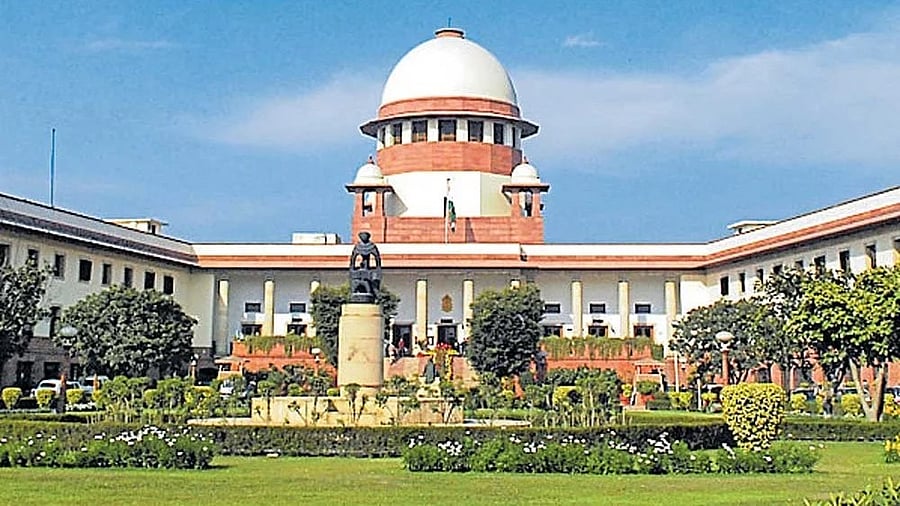
A view of the Supreme Court of India
Credit- DH Photo
New Delhi: The Supreme Court has quashed a POCSO Act case against a man for he married the victim who herself expressed her desire to live a peaceful and stable family life after being blessed with a son. It emphasised the administration of criminal law should not be divorced from the practical realities.
Setting aside the conviction of K Kirubakaran and sentence of 10 years jail, a bench of Justices Dipankar Datta and Augustine George Masih said, rendering justice demands a nuanced approach and this court tailors its decisions to the specifics of each case: with firmness and severity wherever necessary and it is merciful when warranted.
The court said, "It is also in the best interest of society to bring a dispute to an end, wherever possible. The law aims to ensure not just punishment of the guilty, but also harmony and restoration of the social order."
The bench found that the appellant and the victim were not only legally married, they were also in their family way.
"Considering the offence committed by the appellant punishable under the POCSO Act, we have discerned that the crime was not the result of lust but love,'' the bench said.
In view of the victim's assertion, the court opined continuation of the criminal proceedings and the appellant’s incarceration would only disrupt this familial unit and cause irreparable harm to the her and the infant child, and the fabric of society itself.
"This is a case where the law must yield to the cause of justice,'' the bench said.
The bench quoted Benjamin N Cardozo, former Associate Justice of the Supreme Court of United States, who said the final cause of law is the welfare of society.
Using Article 142 of the Constitution, the bench said, this power was intended to avoid situations of injustice being caused by the rigid application of law.
The father of the victim also said he has no objection to the criminal proceedings being brought to an end.
The court noted although the proceedings can't be quashed the basis of a compromise between the appellant and his wife, "But ignoring the cry of the appellant’s wife for compassion and empathy will not, in our opinion, serve the ends of justice. Even the most serious offenders of law do receive justice moderated by compassion from the courts, albeit in appropriate cases".
Adopting a balanced approach and combining practicality and empathy, the court bound the appellant to the specific condition of not deserting his wife and child and also to maintain them for the rest of their life with dignity.
"If, in future, there be any default on the appellant’s part and the same is brought to the notice of this court by his wife or their child or the complainant, the consequences may not be too palatable,'' the bench warned.
